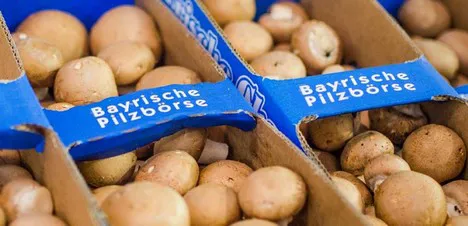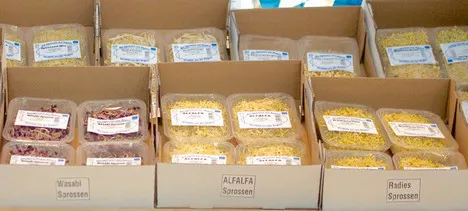Rising compost and energy prices, the dry summer, and high inflation are having a noticeable impact on the cultivated mushroom sector. "In Poland, circumstances have already driven several, mainly smaller, farms, into insolvency. In Germany and the Netherlands, growers are facing the same challenges, although there have been no insolvencies in this country yet. All in all, the situation is putting tremendous pressure on the markets," said Peter Hein, managing director of Bayrische Pilzbörse Ltd, based at Munich's wholesale market.
After last year's price adjustment for mushrooms, a further price increase would be very difficult for the time being, according to Hein. This is because the mushroom wholesaler is also noticing an increased price awareness on the part of the consumer.
"Nevertheless, the gastronomy sector in particular continues to fall back on the somewhat higher-priced mushroom exotics, such as King Trumpet mushrooms and oyster mushrooms. Shiitake as well as organic mushrooms, on the other hand, are declining. At Christmas, volume sales in the food service sector were somewhat weaker due to staff shortages, while food retailers saw a slight increase. In the first half of January, there was increased use of vegetables, including edible mushrooms, due to good intentions. At the moment, a lot of produce is needed, particularly in the Austrian ski resorts."

Shortages in summer and fall
Lower yields and subsequent volume problems characterized the 2022 marketing year, Hein says, looking back. "As the wild mushroom season draws to a close, demand for cultivated mushrooms will traditionally increase. This has led to noticeable shortages in late summer and fall." The wild mushroom campaign will also be remembered as below average. "Due to the war, we could not resort to Russian as well as Belarusian goods, so we had to rely mainly on Poland and Lithuania. There was a lack of volume from the back and front, which in turn was reflected in high, stable prices."
2023 also got off to a fairly challenging start, Hein continues. "Commodity procurement is causing us extreme problems, with very high purchase prices for white mushrooms. The next problem is forming in logistics: there is currently a shortage of 1,000 truck drivers in the Munich area alone, plus the long procurement times for new vehicles and the increased fuel prices."

Year-round marketing of regional organic cress
In addition to a wide variety of mushrooms, Bayrische Pilzbörse also markets cress produced in Bavaria. "Although cress have established themselves primarily as a summer item, the main varieties, beet and radish, are now firmly established in the region. This is mainly due to the organic quality and regional origin. It is also advantageous that the reduction in purchasing power in Bavaria is still relatively manageable compared to other German states," Hein concludes.
Pictures: Bayrische Pilzbörse Ltd..
For more information: Peter Hein
Peter Hein
Bayrische Pilzbörse GmbH
Großmarkt München
Tel. : 089 746656-33 -34
Fax : 089 74665635
info@bayrische-pilzboerse.de
www.bayrische-pilzboerse.de
